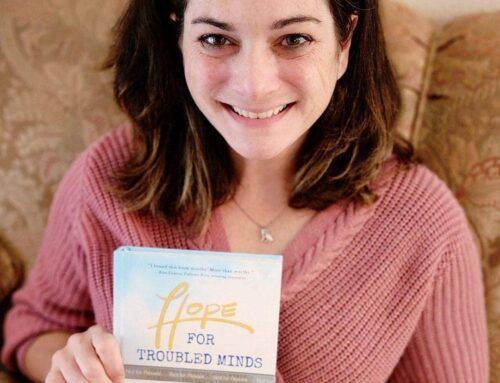Shame is a soul eating emotion. ― C.G. Jung
Guilt can be good if it leads to a change of heart, a transformed mind, and reformed behavior. Shame, however, is a wicked parasite that feeds off not what we have done but who we are.
Shame is an external imposition. At least it starts that way. We are taught to feel ashamed. The 3-year old child of a friend once hopped out of the bathtub and took off running through the halls, shouting “I love my body. I love my body.” This innocent exuberance is soon replaced by quiet discretion which, if handled too roughly, can become shame the child feels over his body.
Shame is not part of God’s created order.
Adam and his wife were both naked, and they felt no shame. (Genesis 2.25)
Shame only came about as a result of disobedience. It is not God’s good design, and it is not what God wants for his faithful ones:
Those who look to him are radiant; their faces are never covered with shame. (Psalm 34.5)
There are many ways to cultivate shame but perhaps the most effective way is silence. If a subject is taboo, never brought to the light of day, we assume it is too terrible to mention. Rather than bringing it to light and dealing with it as it is, it festers in the darkness like pus covered by a vile boil.
I have found that the worst way to treat my mental illness is to keep it a secret. Certainly, as a pastor, I had to use discretion so as not to draw too much attention to myself at the risk of caring for others. The best advice I ever received about disclosing my illness was to share it with two or three trusted Board members, then only naturally if it could be an encouragement to those struggling as well. Following this model, I was able to enjoy nearly a decade of fruitful ministry. When I tried to keep it a secret, I barely lasted a year.
Discretion becomes even more complicated when it it comes to a loved one’s mental illness. If they make it clear they do not want to tell anybody, there is still the question of what you do for support. Often the burdens loved ones shoulder are as great if not greater than those of us diagnosed. They may well need to share these in a support group. I recommend starting with the National Association on Mental Illness (NAMI)’s “Family-to-Family” course.
I once spoke at a suicide prevention awareness event. I always look forward to these, finding that no matter how big the gathering is, at least one soul is inevitably encouraged. In addition to mine.
After I spoke, a young woman came forward and told her story. With bold confidence, she looked up and told me of the many despairing moments, but ultimately defining hope. As she did so, you could almost see the weighty burden of shame over the unspoken being lifted. It was a beautiful moment. Her face glowed.
I celebrate these moments and believe that in Christ, they are everlasting, as he has promised,
Come to me, all you who are weary and heavy laden, and I will give you rest. (Matthew 11:28)
Discover more from Delight in Disorder
Subscribe to get the latest posts sent to your email.









Those of us who suffer from any form of mental illness, be it depression, bipolar, anxiety or anything else, certainly don’t need shame chucked in. There are so-called Christian churches who point the finger while looking down their self-righteous noses and declare, “You should be ashamed of yourself for not trusting in God.” The thing is, there are many amazing people of God both in the Bible and closer to our time who have suffered from depression. King David, with his cry of “my soul, why are you cast down?” Job, Elijah to name just a couple. Closer to our day, Spurgeon springs to mind. We’re in good company, aren’t we, Tony 🙂
Approve.
Blessings in Christ,
Tony
Facebook Author Page Delight in Disorder Website Revealing Voices Blog
*“Delight yourself in the Lord, and he will give you the desires of your heart.”* (Psalm 37.4)